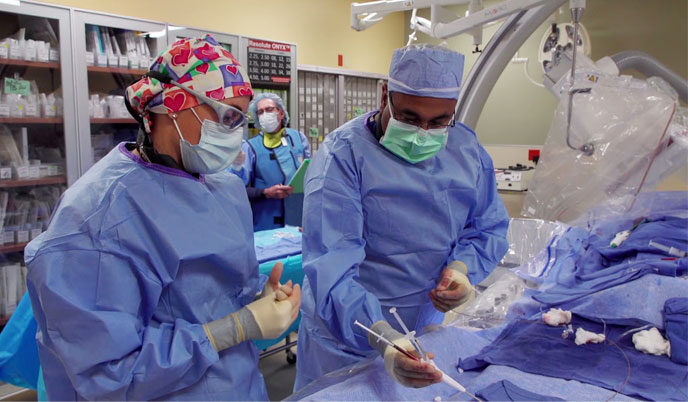
UW Health treats first patient in U.S. with investigational cell therapy for heart disease
Appleton resident Donald Krause became the first patient in the country last week to undergo an investigational cell therapy for a debilitating heart condition called chronic myocardial ischemia (CMI).
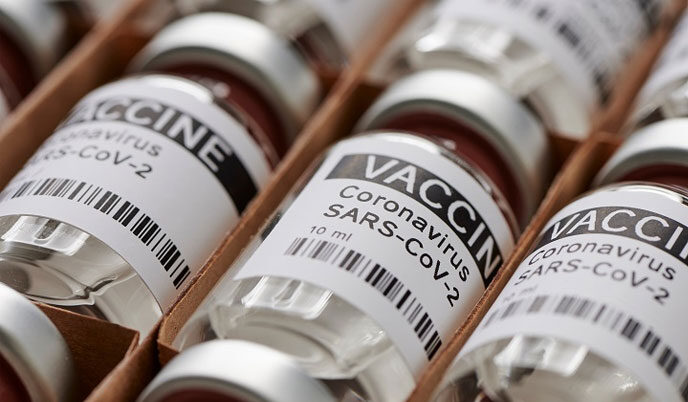
UW study examines allergic reactions to COVID-19 vaccines
Researchers from the UW School of Medicine and Public Health are seeking participants for a clinical study that examines whether the mRNA COVID-19 vaccines (Pfizer/BioNTech and Moderna) pose an increased risk for allergic reactions in individuals who are already considered “highly allergic.”
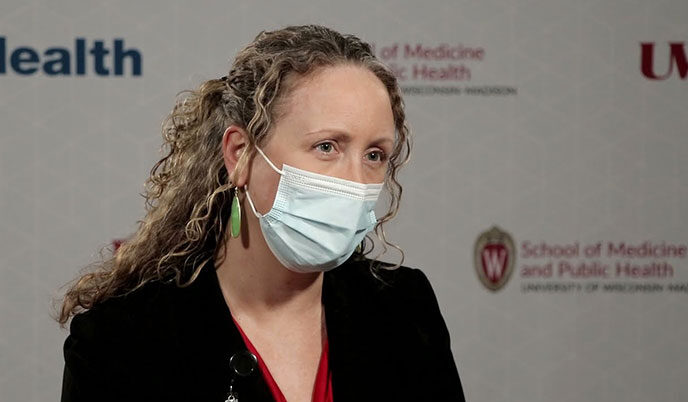
UW shows strong presence at Alzheimer’s Association International Conference
The world’s largest and most prestigious Alzheimer’s disease conference is underway this week, and UW Alzheimer’s disease researchers are attending in high numbers, leading several important discussions.

Dr. Ann Sheehy named a Robert Wood Johnson Foundation Health Policy Fellow
In recognition of her expertise as a physician and work addressing health equity issues, Ann Sheehy, MD, MS, associate professor of medicine and chief of the Division of Hospital Medicine in the Department of Medicine, was named a Robert Wood Johnson Foundation Health Policy Fellow by The National Academy of Medicine for the class of 2021-22.
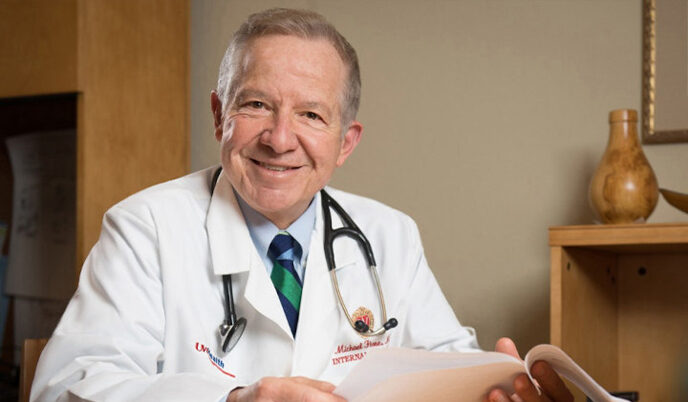
Michael Fiore named recipient of campus Hilldale Award
University of Wisconsin School of Medicine and Public Health professor of medicine Michael Fiore, MD, MPH, MBA, has been named the recipient of the 2021 Hilldale Award for Biological Sciences. Fiore is the director of the University of Wisconsin Center for Tobacco Research and Intervention.
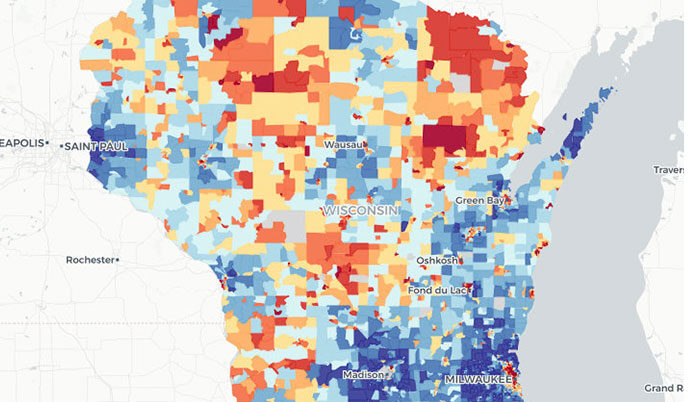
Alzheimer’s study finds link between living in disadvantaged neighborhoods and brain shrinkage, declining brain function
In a newly published study, researchers at the University of Wisconsin School of Medicine and Public Health report finding a correlation between living in neighborhoods with the fewest social and economic advantages and experiencing changes in brain structure and function that are characteristic of Alzheimer’s diseases and related dementias.
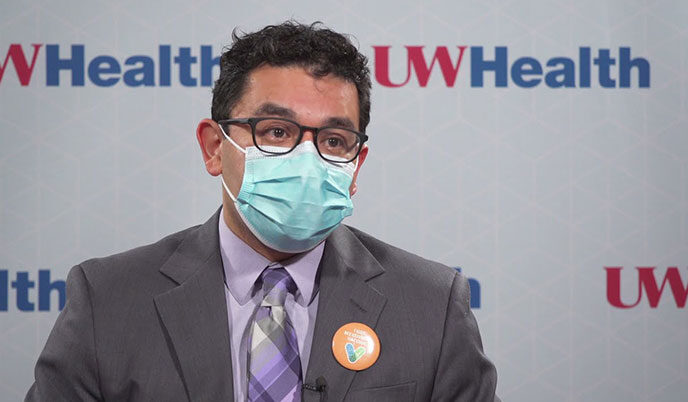
New UW study examines immune response to COVID-19 vaccine in patients with inflammatory bowel disease
A new study at the University of Wisconsin School of Medicine and Public Health is looking at the immune response to COVID-19 vaccines in patients with inflammatory bowel disease (IBD). Enrollment is open now for patients who fit the criteria.

Nataliya Uboha named faculty leader of Cancer Therapy Discovery and Development (CTD2) at UW Carbone Cancer Center
Nataliya Uboha, MD, PhD, has been selected to lead the Cancer Therapy Discovery and Development (CTD2) program at the University of Wisconsin Carbone Cancer Center.

One year later: Expert panel gathers to reflect on the coronavirus pandemic
One year ago, at an event organized by the UW School of Medicine and Public Health, a panel of experts in virology, infection control, global health, clinical testing, vaccine development, and health system responses reflected on an emerging outbreak of a new form of coronavirus that the world had not yet witnessed. The virus hadn’t yet been named. On Feb. 11, 2020, it was designated as SARS-CoV-2 and the disease it causes was named COVID-19. The auditorium was filled with an audience eager for any available information about the emerging threat.

Alan Bridges wins prestigious Veterans Health Administration award
Professor of medicine and chief of staff at the William S. Middleton Memorial Veterans Hospital Alan Bridges, MD, has won the prestigious Veterans Health Administration (VHA) John D. Chase Award for Executive Excellence in Health Care.

COVID-19 data model quantifies region-specific impact of social distancing orders
As the COVID-19 pandemic first took hold in regions across the United States in spring 2020, local officials, hoping to quell the spread of the virus, turned to the only actionable defenses available at the time: closing schools and businesses, banning mass gatherings, issuing stay-at-home orders and enforcing other social distancing measures.

UW studies investigate need for and impact of culturally aware mentorship training
Higher education institutions frequently offer mentored research experiences to increase undergraduate student interest, motivation and preparedness for research careers in Science, Technology, Engineering, Mathematic and Medicine (STEMM) fields.